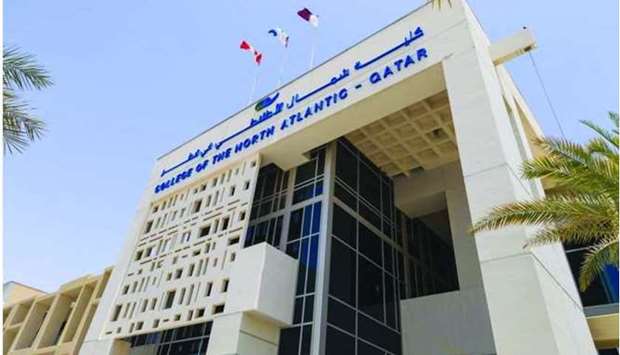The College of the North Atlantic – Qatar ( CNA-Q) has announced the opening of applications for the Winter 2022 Semester until November 18, 2021. Applicants can register online through the website “cna-qatar.com”.
CNA-Q has 19 Applied Bachelor’s programmes, three Applied Masters’ programmes in addition to 28 diploma programmes. The College offers four programmes that are completely new in Qatar: Bachelor of Applied Business Administration in Banking and Financial Technology; Bachelor of Applied Science in Data Science and Artificial Intelligence; Bachelor of Applied Science in Respiratory Therapy and Bachelor of Applied Science in Medical Radiography. The programmes fall under 3 main streams: Engineering Technology and Industrial Trades, Business Management and Information Technology and Health Sciences. Total number of students recorded for the fall semester is 4,759, with 22% being Qatari students.
The fees exemption decision for both Qatari citizens and children of Qatari women, announced by the College's board of trustees in 2020, gave these students a chance to study at CNA-Q and benefit from top-notch applied education. Academic entry criteria differ according to programmes, nevertheless students need to present a high school graduation certificate with an overall average of minimum 60% or an equivalent; a minimum required score or higher on the CNA-Q English Placement Test and the completion of the College’s Math Placement Test.
Applicants who do not meet the entrance requirements may be considered for the Foundation Programme designed to help them acquire the needed skills to enter their programme of choice.
Dr Salem Al-Naemi, CNA-Q’s president, said: “We are pleased to see CNA-Q attracting an increasing number of students, especially the Qatari nationals. The new generation has become more aware of the effectiveness of applied education. The latter gives students the chance to be involved in a critical and integrative learning experience. Through simulated environments and practical trainings, students are exposed to curriculums that are aligned to the international and local labor market and the requirements of an ever-evolving economy.”
At CNA-Q, students are placed at the centre of the learning process. The college aims to give them as many real-life learning experiences as possible, so they can extend what they acquired in the classroom to their workplace and actively contribute to the economy. Curriculums have been designed based on the International and National Academic Qualifications Framework. All programmes are delivered using hands-on applied experiential learning methodologies and include 40-70% applied components and practical experience related to one or more occupational fields of practice.
The fees exemption decision for both Qatari citizens and children of Qatari women, announced by the College's board of trustees in 2020, gave these students a chance to study at CNA-Q and benefit from top-notch applied education. Academic entry criteria differ according to programmes, nevertheless students need to present a high school graduation certificate with an overall average of minimum 60% or an equivalent; a minimum required score or higher on the CNA-Q English Placement Test and the completion of the College’s Math Placement Test.
Applicants who do not meet the entrance requirements may be considered for the Foundation Programme designed to help them acquire the needed skills to enter their programme of choice.
Dr Salem Al-Naemi, CNA-Q’s president, said: “We are pleased to see CNA-Q attracting an increasing number of students, especially the Qatari nationals. The new generation has become more aware of the effectiveness of applied education. The latter gives students the chance to be involved in a critical and integrative learning experience. Through simulated environments and practical trainings, students are exposed to curriculums that are aligned to the international and local labor market and the requirements of an ever-evolving economy.”
At CNA-Q, students are placed at the centre of the learning process. The college aims to give them as many real-life learning experiences as possible, so they can extend what they acquired in the classroom to their workplace and actively contribute to the economy. Curriculums have been designed based on the International and National Academic Qualifications Framework. All programmes are delivered using hands-on applied experiential learning methodologies and include 40-70% applied components and practical experience related to one or more occupational fields of practice.

